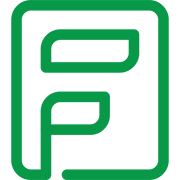Product Introduction
- Zoho Forms is an online form builder designed to help businesses create custom forms, automate workflows, and collect data efficiently for purposes such as lead generation, event registrations, and order processing. It offers a no-code interface with drag-and-drop functionality, pre-built templates, and integrations with third-party applications to streamline data management.
- The core value of Zoho Forms lies in its ability to simplify complex data collection processes while ensuring seamless integration with business workflows, enabling organizations to focus on decision-making rather than manual data handling. It prioritizes security, compliance, and cross-platform accessibility to cater to diverse business needs.
Main Features
- Zoho Forms provides a no-code form builder with 30+ customizable field types, dynamic themes, and templates to create visually appealing forms for surveys, orders, feedback, and more. Users can apply conditional logic, validation rules, and UTM tracking to optimize form performance and data accuracy.
- The platform supports multi-channel data collection by allowing forms to be embedded on websites, shared via email or social media links, or distributed as QR codes. It offers granular access controls to keep forms private or public, ensuring flexibility for internal or external audiences.
- Zoho Forms integrates with Zoho CRM, Google Sheets, Salesforce, Zapier, and other apps to automate data transfer and workflows. It also includes payment gateways like PayPal and Stripe for e-commerce forms, alongside real-time notifications via email, SMS, or chat platforms for instant updates on submissions.
Problems Solved
- Zoho Forms eliminates manual data entry errors and inefficiencies by automating data capture, validation, and transfer to integrated apps. It replaces paper-based processes with digital forms, reducing administrative overhead and ensuring compliance with GDPR, HIPAA, and CCPA standards.
- The product targets businesses of all sizes, including HR teams, marketing departments, event organizers, and e-commerce platforms, that require scalable solutions for lead generation, feedback collection, or internal approvals.
- Typical use cases include creating enrollment forms with e-signature workflows, automating invoice generation through document merging, and setting up approval hierarchies for collaborative task management. Nonprofits and educational institutions also use it for registrations and surveys.
Unique Advantages
- Unlike competitors, Zoho Forms combines advanced form-building capabilities with deep integrations across Zoho’s ecosystem (e.g., Zoho CRM, Zoho Sign) and third-party tools, enabling end-to-end workflow automation without requiring coding expertise.
- Its Card form format, a one-field-per-page design, improves user experience for mobile respondents, while offline form creation via mobile apps ensures accessibility in low-connectivity environments. The platform also supports UTM tracking and analytics to measure form conversion rates.
- Zoho Forms adheres to ISO/IEC 27001 cloud security standards and offers enterprise-grade features like role-based access, audit logs, and GDPR compliance, making it suitable for industries with strict data privacy requirements.
Frequently Asked Questions (FAQ)
- Is my data secure with Zoho Forms? Zoho Forms uses SSL encryption, GDPR-compliant data handling, and ISO-certified cloud infrastructure to protect user data. It also supports HIPAA and CCPA compliance, with options to restrict form access and enable audit trails for sensitive information.
- How do I create a form using Zoho Forms? Users can sign up for a free account, choose a template or start from scratch, add fields via drag-and-drop, configure validation rules, and publish the form via URL, embed code, or QR code. Conditional logic and notifications can be set up during the form-building process.
- Is Zoho Forms free to use? Zoho Forms offers a free plan with unlimited forms, basic integrations, and 500 monthly submissions. Paid plans unlock advanced features like document merging, subforms, and increased storage, making it cost-effective for scaling businesses compared to other form builders.
